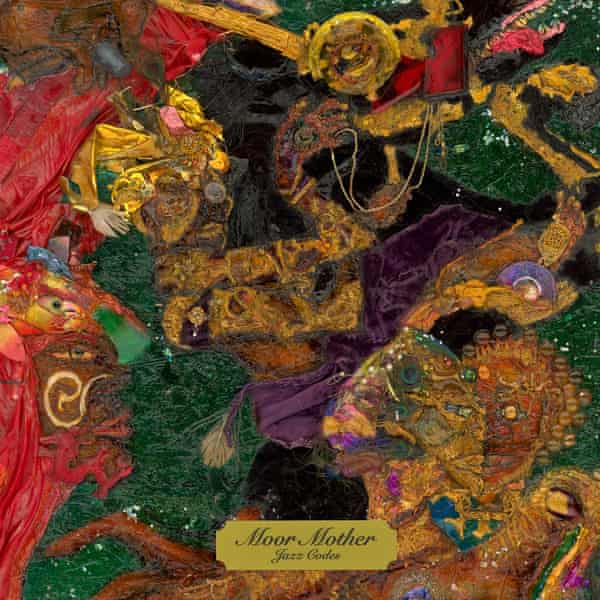As a poet, composer, educator, audiovisual artist, activist and playwright, Moor Mother’s Camae Ayewa connects with people in any environment – be it her native Philly DIY scene, teaching in LA or her residency at Cern. She dubs her approach “Black quantum futurism”, exploring sound’s potential to evoke memories as a vehicle for navigating time. Thus her music sustains a constant, complementary tension between the hushed, folkloric mantras and defiant Afrofuturist litanies she shares, her sound drawing freely from noise, jazz, blues and beats while respecting the practice of each mode. Her latest album is an ambitious anthropological undertaking, looking to map out a history of Black classical – music of the jazz continuum – that stretches into the future as well as the past.

Jazz Codes began as a poetry book with accompanying instrumentals from producer Olof Melander, though Ayewa soon found herself playing bandleader to an ensemble of virtual collaborators during lockdown. Her spoken words, songs and sighs give shape to this tempest of jazz, hip-hop and R&B, whirling together a who’s-who of Black classical: Ayewa dextrously chains mentions of Billie Holiday, Albert Ayler, Nina Simone and Rahsaan Roland Kirk on rap manifesto Evening. Ode to Mary embodies its tribute to Mary Lou Williams beyond title and lyrics, as Jason Moran’s cameo on the keys channels the effortless elasticity of her piano playing.
More than a dozen guests seamlessly breeze in and out of the record, representing the contemporary and communal aspects of this lineage. Prof Thomas Stanley closes the album, declaring jazz as living music; this elemental force, born from oral traditions, couldn’t exist solely on record. But whatever its form, Ayewa lives and breathes it.
Stay connected with us on social media platform for instant update click here to join our Twitter, & Facebook
We are now on Telegram. Click here to join our channel (@TechiUpdate) and stay updated with the latest Technology headlines.
For all the latest Music News Click Here
